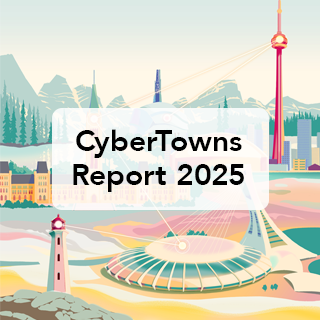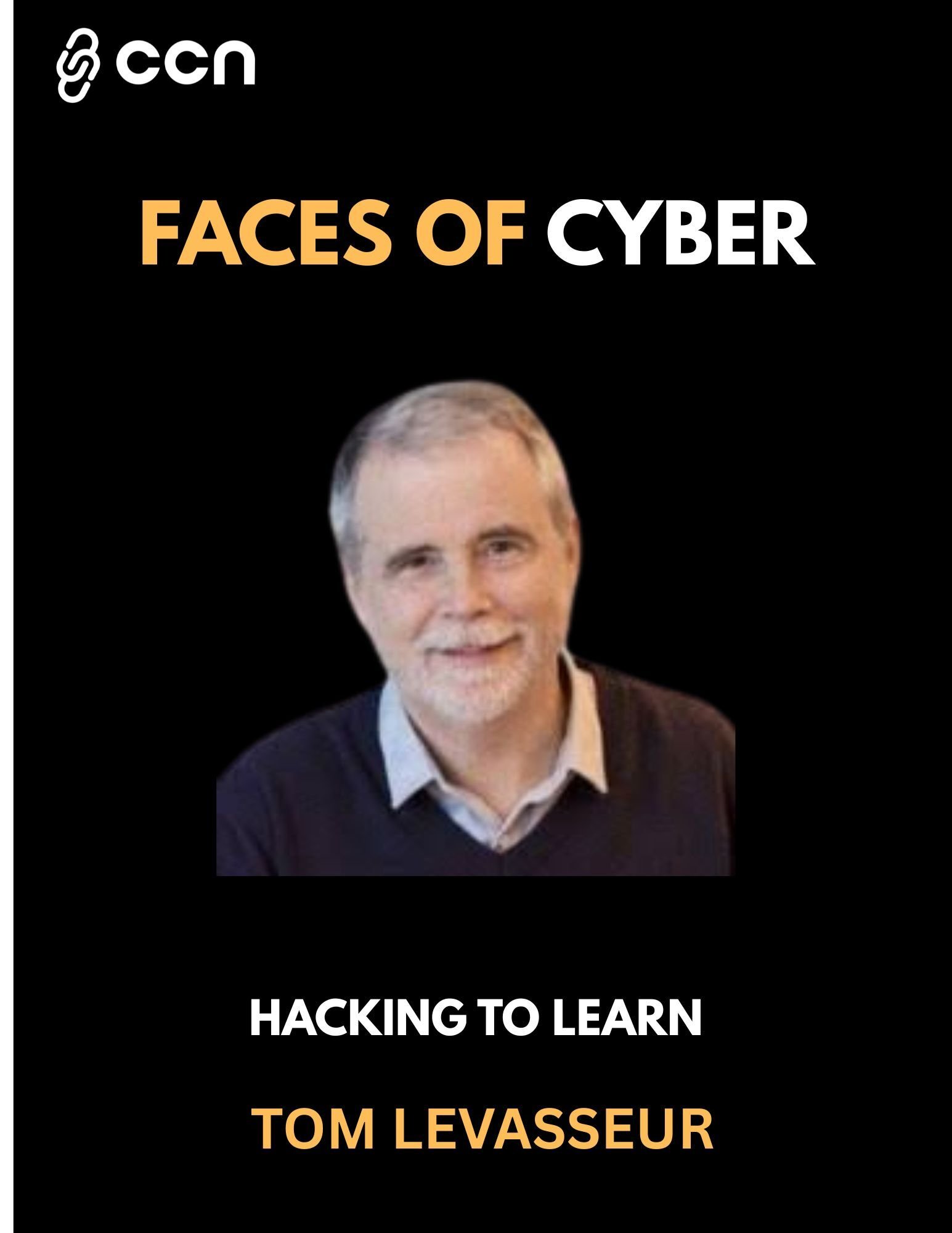Canada’s Cyber Cities Take Center Stage in New National Report
CyberTowns 2025 reveals how Canadian cities are shaping the future of cybersecurity and our digital way of life.
2 min read
 Francois Guay
:
November 14, 2024
Francois Guay
:
November 14, 2024

Nation-state cyberattacks have surged to the forefront of concern among Canada’s cybersecurity professionals, with 38% of experts identifying them as their top concern, according to a recent survey by the Canadian Cybersecurity Network (CCN). Representing over 42,000 members, CCN’s findings reflect a chilling reality: our critical infrastructure, national security, and even societal stability are increasingly under siege by state-backed hackers.
What keeps experts awake at night? It’s the sheer power and sophistication of the tools these cyber adversaries wield. Over half (50%) of surveyed professionals are particularly troubled by the specialized resources available to nation-states—resources that far exceed what private entities and smaller nations can defend against. These well-funded attackers exploit zero-day vulnerabilities and deploy custom malware, often undetected, in long-term espionage campaigns aimed at gathering intelligence or destabilizing key institutions. Their strategies are evolving, outpacing the defenses that most organizations have in place.
A particularly concerning finding from the survey is the vulnerability of critical infrastructure, with 35% of respondents highlighting this as their primary worry. In their view, sectors like healthcare, energy, and transportation are unprepared for the scale and persistence of nation-state attacks. Real-world examples, like the Russian-led attacks on Ukraine’s power grid in 2015 and 2016, show just how disruptive these operations can be. A successful strike against critical infrastructure could shut down cities, disrupt medical services, or paralyze transportation networks. This isn’t just theory; it’s a warning grounded in hard evidence and a historical pattern of aggression by state actors.
The geopolitical motivations behind these cyber incursions add another layer of unpredictability, with 15% of respondents citing political factors as a driving concern. These attacks aren’t just technical threats; they are increasingly being wielded as instruments of global influence and intimidation, particularly as tensions escalate between major powers. Cyber warfare is now an entrenched tool in statecraft, with far-reaching consequences for businesses, governments, and citizens alike.
The recent high-profile cyber incidents underscore just how real these threats are. The 2020 SolarWinds attack, attributed to Russian hackers, infiltrated thousands of organizations—including major government agencies and corporations—through a compromised software update. Similarly, in 2021, Chinese state-backed hackers exploited vulnerabilities in Microsoft Exchange servers, affecting tens of thousands of organizations worldwide. These incidents highlight the limitations of existing cybersecurity practices when pitted against determined, state-funded adversaries.
Survey data suggests that the worst is yet to come, with experts predicting that future nation-state attacks will increasingly target critical infrastructure. Thirty-five percent of respondents expect attacks on healthcare, energy, and transportation systems to become more frequent as these industries integrate more connected technologies, which expand the attack surface. The emergence of AI in cyber warfare is another critical concern; 50% of experts believe that AI-driven attacks will boost the speed, precision, and stealth of cyber incursions, rendering traditional defense mechanisms obsolete. Quantum computing, while not an immediate threat, looms on the horizon, with the potential to compromise modern cryptographic standards. While this issue isn’t yet front and center, experts are already calling for investment in quantum-resistant encryption technologies to future-proof security.
Given these alarming insights, what can we do? According to the CCN survey, experts are calling for a multi-faceted approach. Stronger public-private partnerships are essential, allowing real-time intelligence sharing and a more coordinated response to cyber threats. There’s also a push for organizations to adopt zero-trust architectures, a “never trust, always verify” model that can limit the reach of potential attackers within systems. Preparing for quantum threats is another priority, with cybersecurity professionals urging organizations to start transitioning to quantum-resistant encryption.
Nation-state cyberattacks are no longer a distant or abstract threat; they are a present danger to Canada’s economy, public safety, and sovereignty. The insights from CCN’s membership show that these threats are only growing more sophisticated and widespread. As cyber warfare becomes an entrenched part of international relations, Canada and its allies must invest now in defenses that match the scale and ambition of these state-sponsored adversaries. Our digital resilience—and the future stability of our critical infrastructure—depend on a proactive, well-coordinated response that leverages the best insights from our cybersecurity community.

CyberTowns 2025 reveals how Canadian cities are shaping the future of cybersecurity and our digital way of life.

As the Canadian Cybersecurity Network (CCN) looks ahead to 2025, the landscape of cybersecurity is both daunting and filled with opportunities for...

Originally published in the